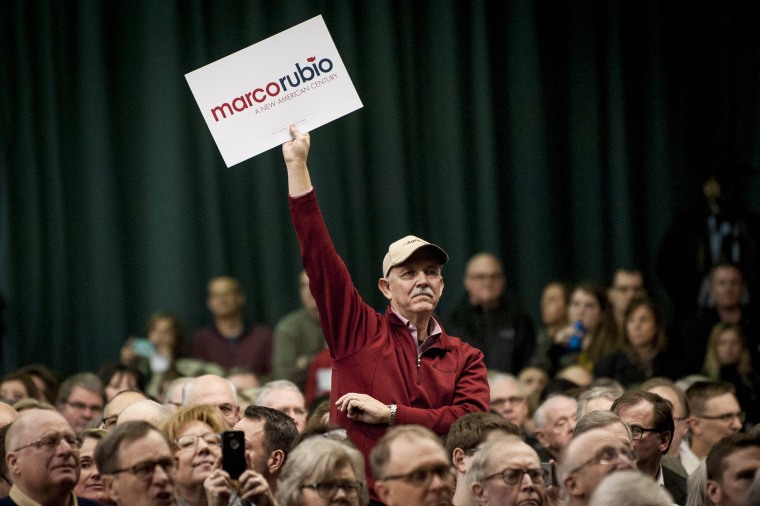On Monday evening, Iowa Republicans will head to schools and community centers to participate in their first-in-the-nation caucuses — the initial step in the GOP’s monthslong presidential nominating process.
The events will take place across 1,657 precincts in the state’s 99 counties.
Follow live results from the 2024 Iowa caucuses
Here’s a quick rundown of how the caucuses work and how Iowans will cast their ballots for their preferred GOP presidential candidates.
When do the caucuses take place?
On Monday, Jan. 15, starting at 8 p.m. ET, which is 7 p.m. in Iowa.
Who gets to participate?
Eligible voters must be at least 18 years old by Nov. 5, 2024, which is general election day. To participate in this GOP contest, caucusgoers must be registered with the Republican Party — but they don’t have to have been Republicans forever. Independents or Democrats who want to participate can re-register to do so, and polling suggests a number of Iowans are taking advantage of that option in the absence of competitive Democratic caucuses.
Same-day voter registration is available for those who didn’t register as Republicans beforehand or those who have never caucused or voted before.
How does it actually work?
It’s important to remember that Democrats and Republicans conduct their caucuses in two very different ways. Republicans select their candidate via a simple secret-ballot vote — unlike the Democratic shuffling from one corner of a caucus site to the other.
Caucusgoers will arrive before 7 p.m. CT and check in. After that, they’ll take care of some procedural measures, like electing precinct chairs and precinct secretaries. The new chairs will then invite presidential candidates’ supporters to address the room.

After those speeches, caucusgoers will receive their ballots and cast their votes for their preferred candidates. The votes are collected, tabulated and then typically announced to the room.
How are the results reported to the Iowa Republican Party?
The Iowa GOP has a process for precincts to upload their unofficial results to a web-based app. Those results then go through a verification process and will be posted online via a link on the state party website, which will be posted the day of the caucuses.
How many Republican National Convention delegates are at stake?
There are 40 Republican delegates up for grabs from the contest (out of a total of 2,429 that will be awarded): 25 at-large delegates, 12 congressional district delegates and three RNC members.
Candidates receive the number of delegates equal to their share of the statewide vote. For example, Ted Cruz’s 28% showing in the 2016 Iowa GOP caucuses translated to eight delegates, compared to seven each for Donald Trump’s 24% and Marco Rubio’s 23%, with the other candidates dividing the rest.


